





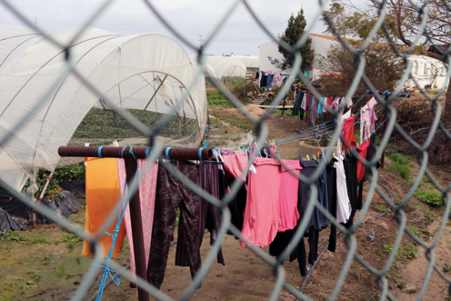
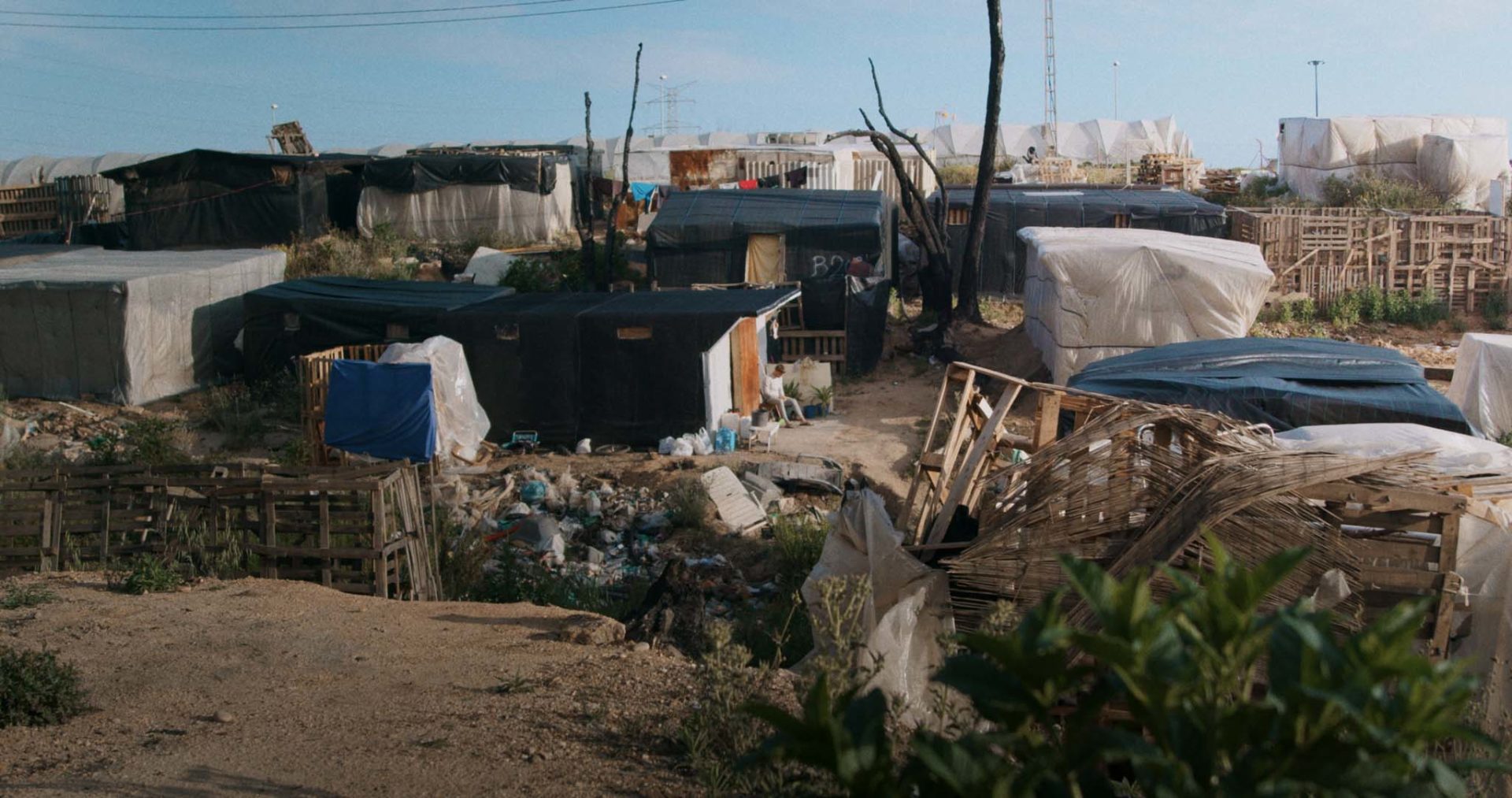
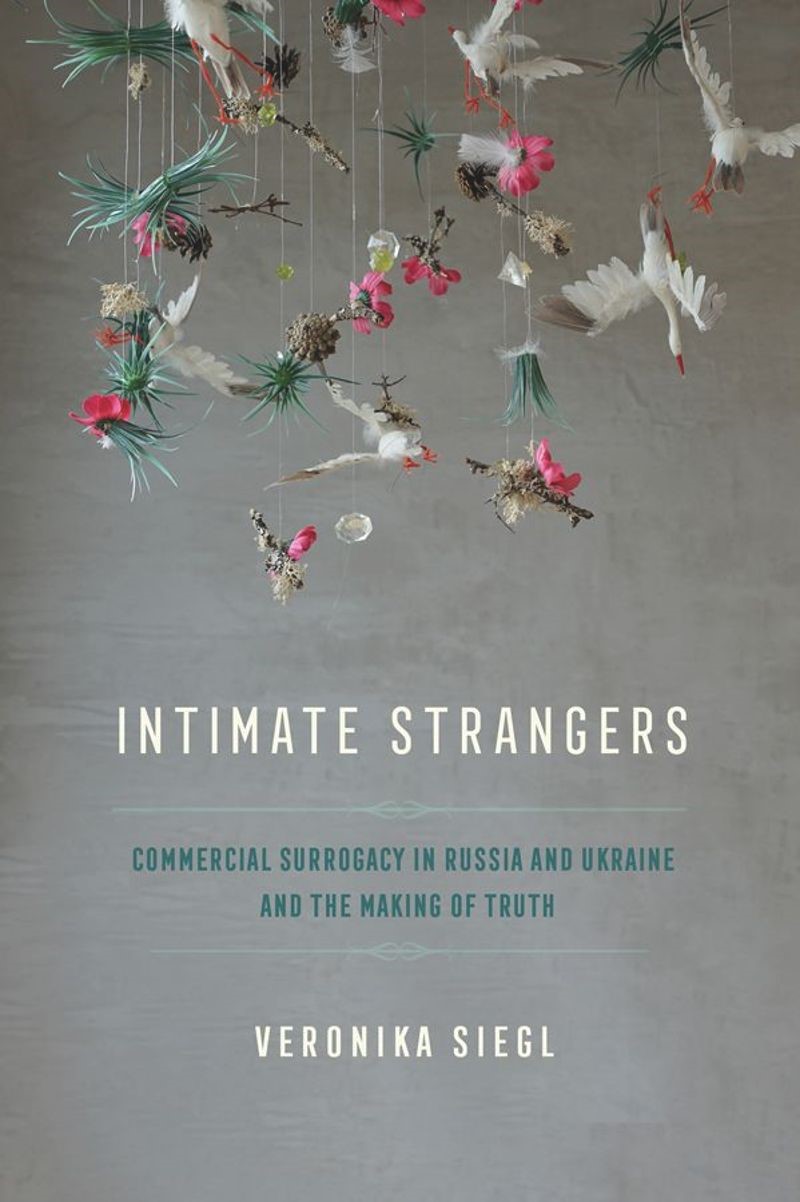































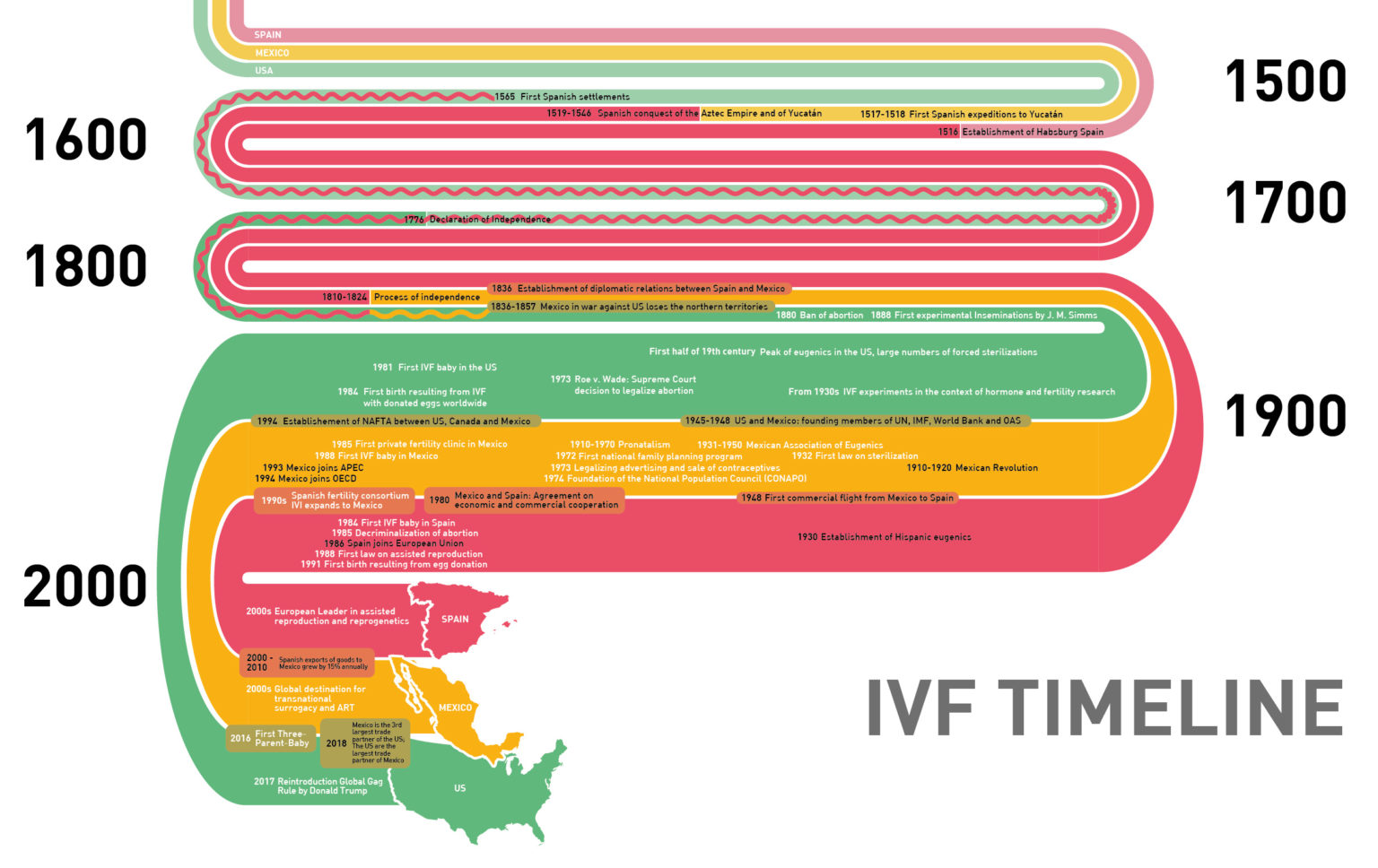












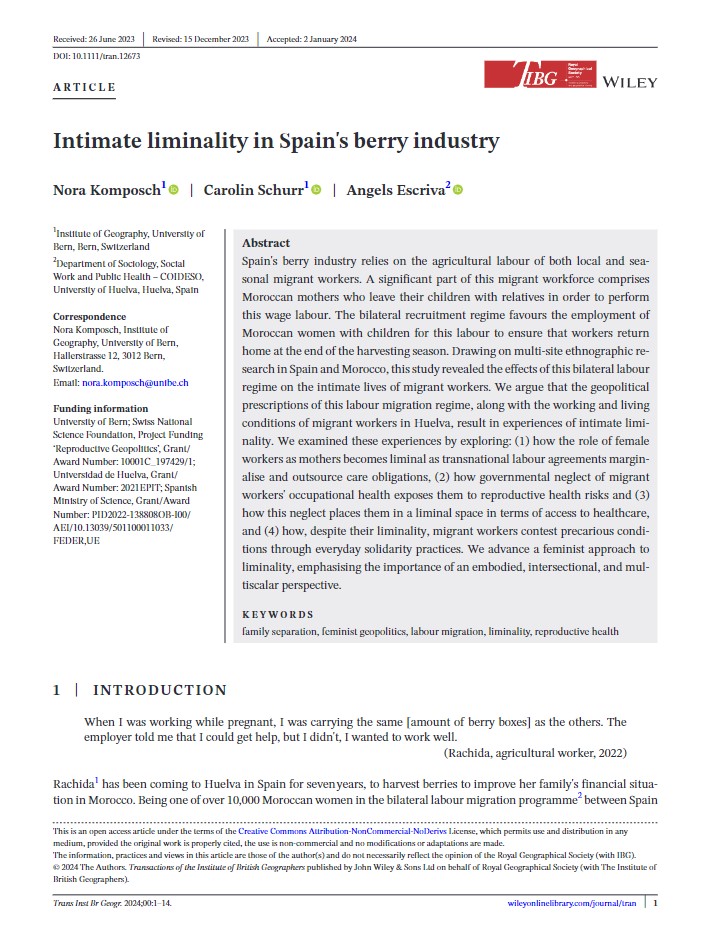


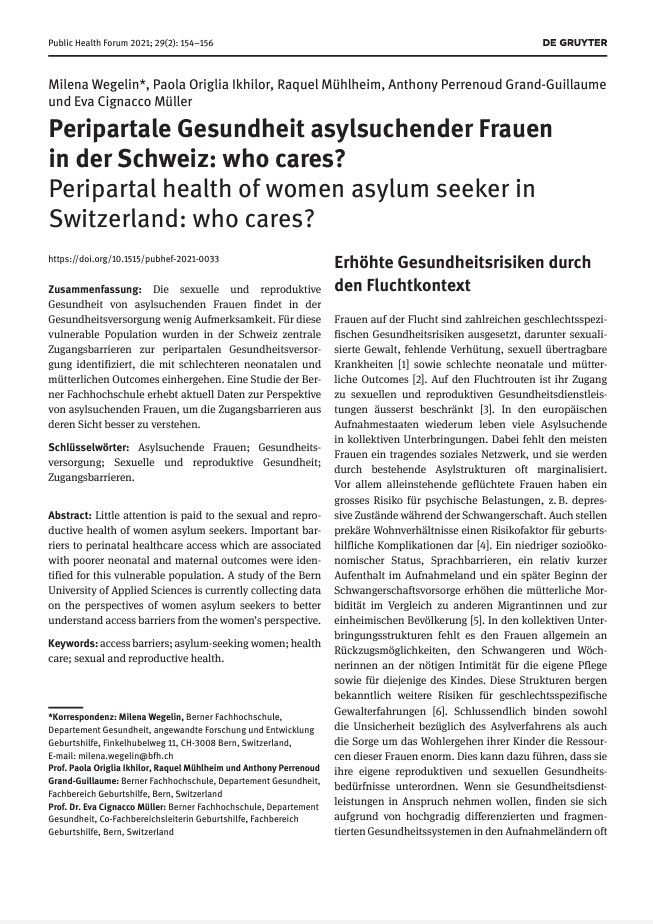
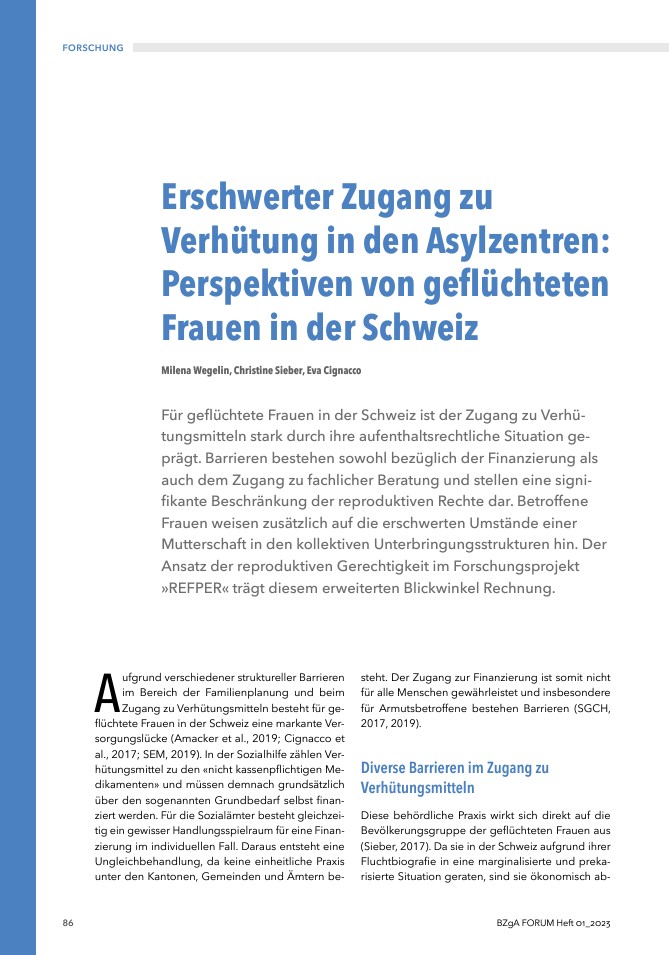
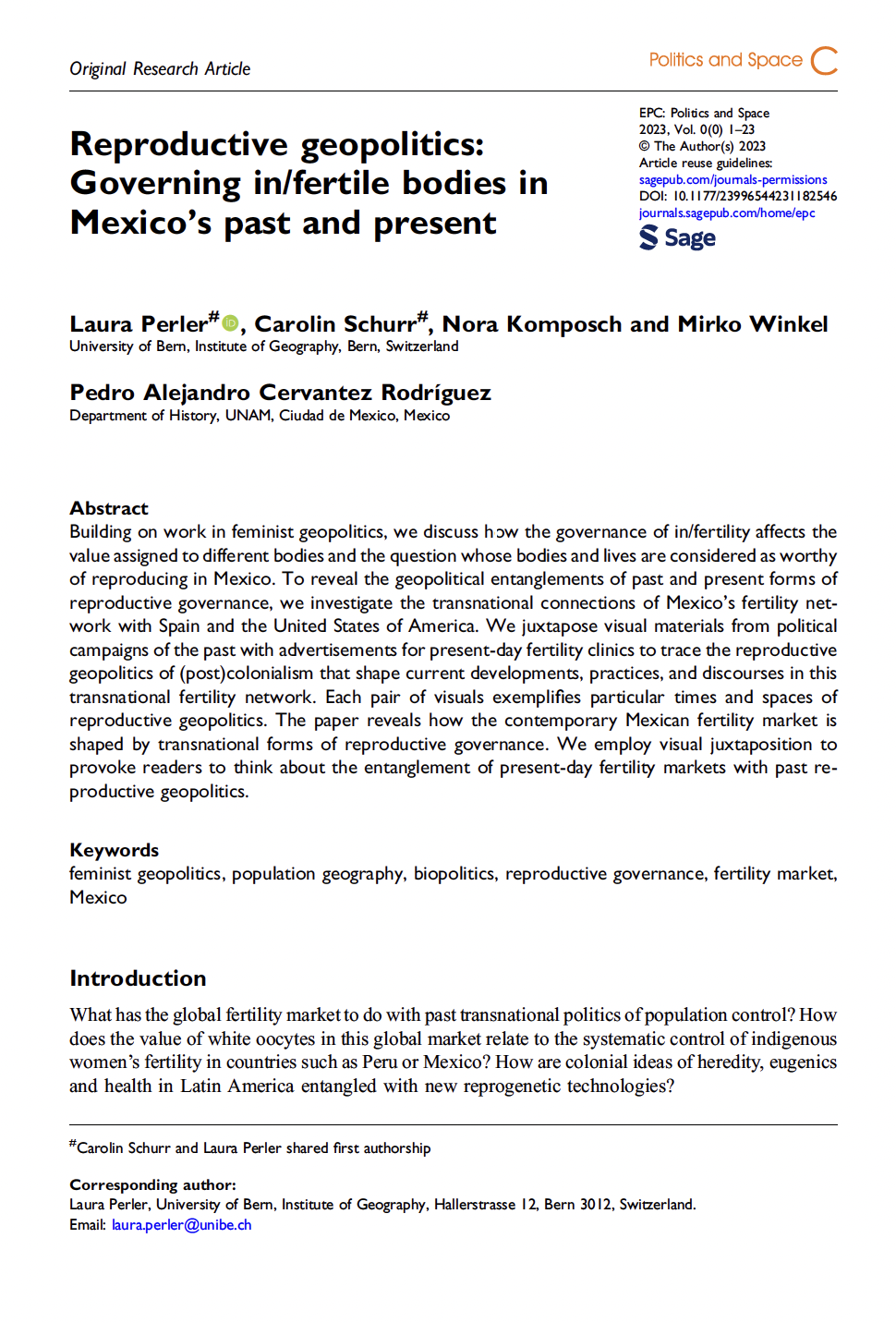
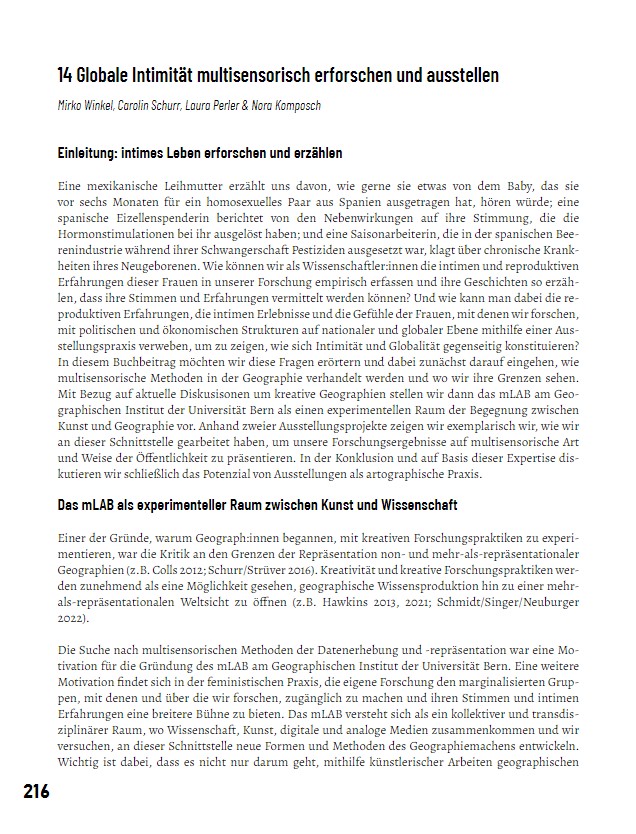
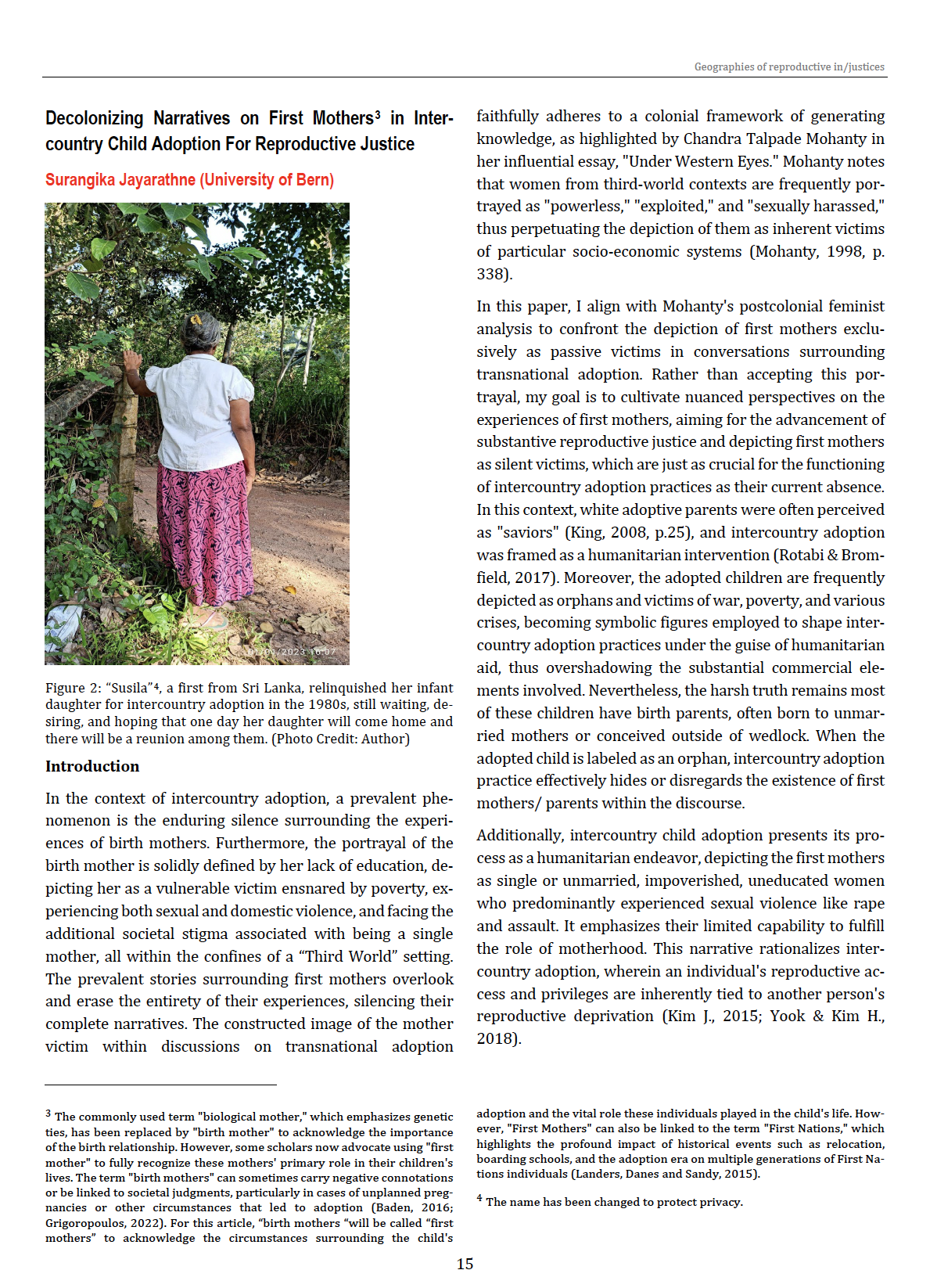
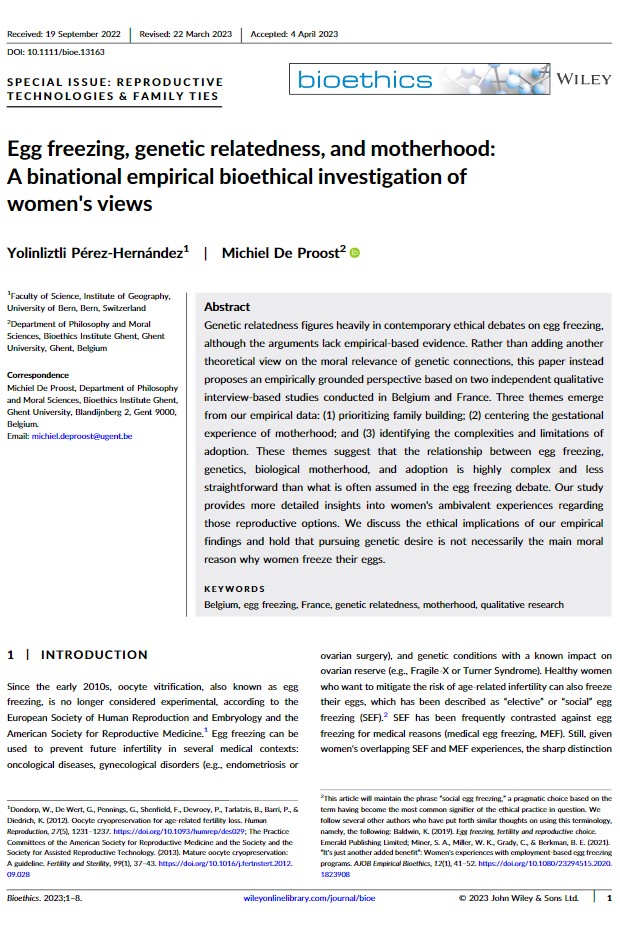
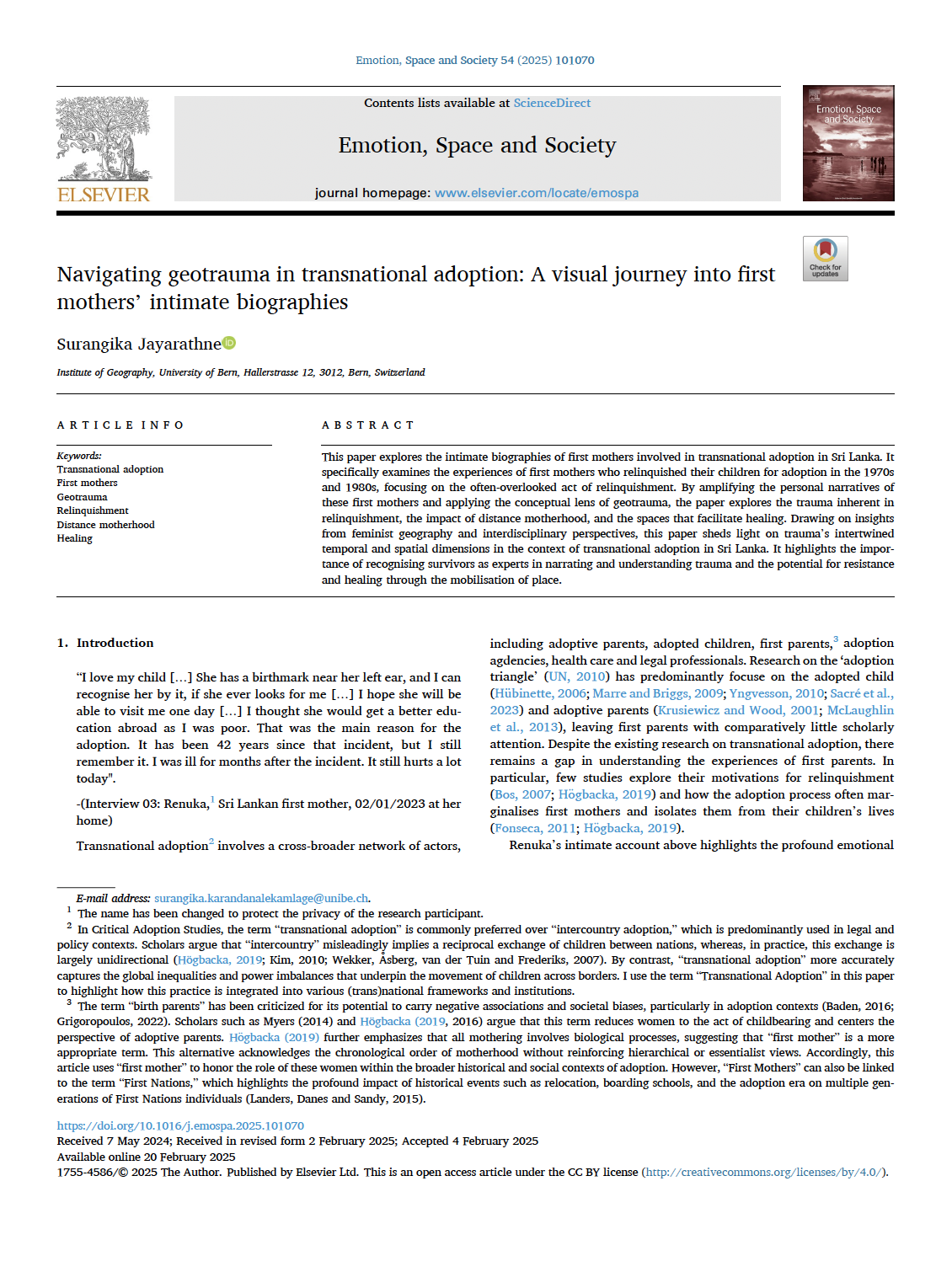

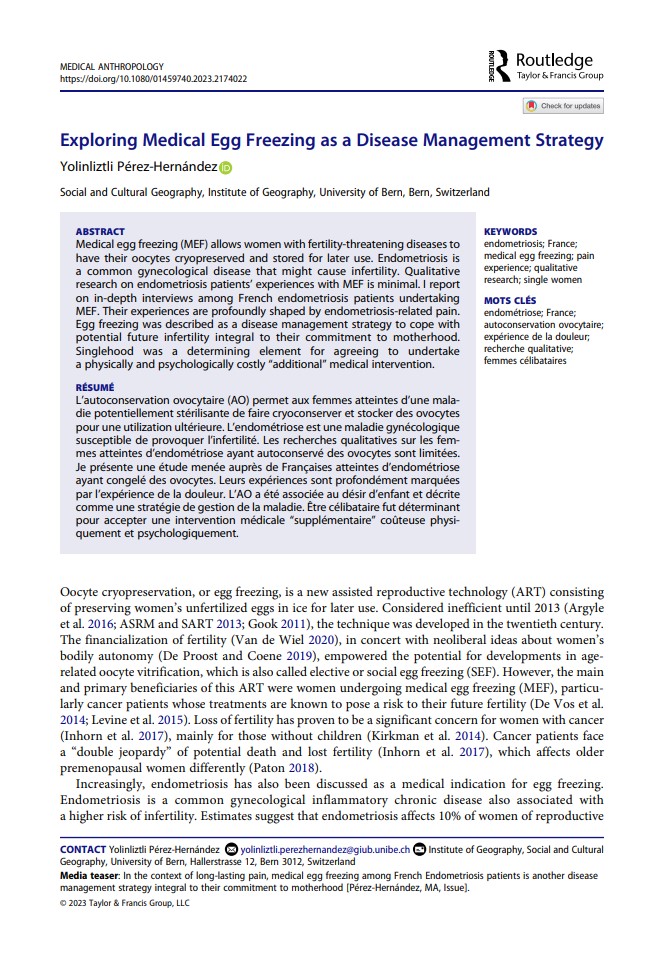
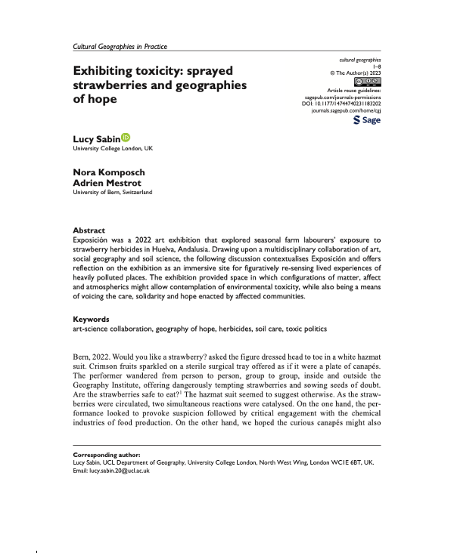
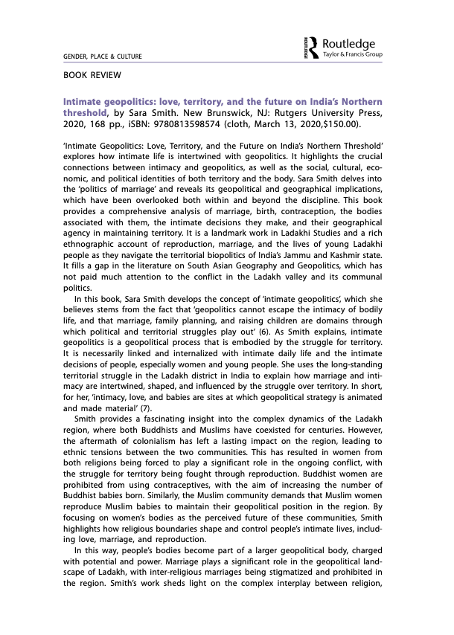
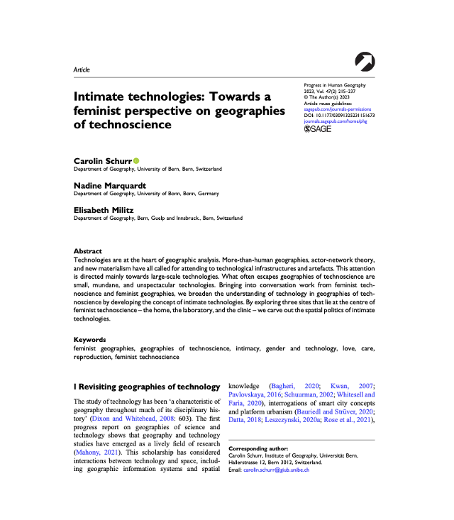
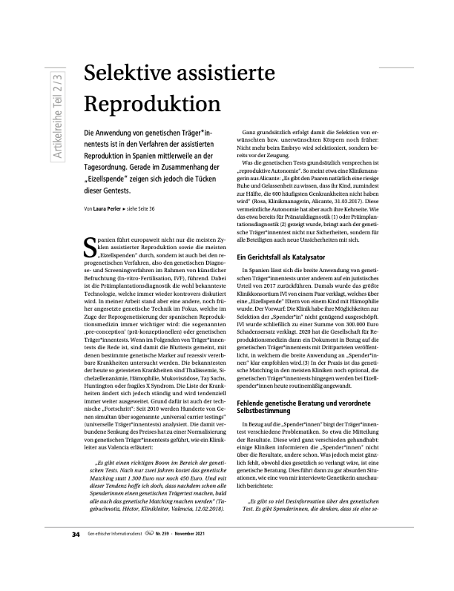
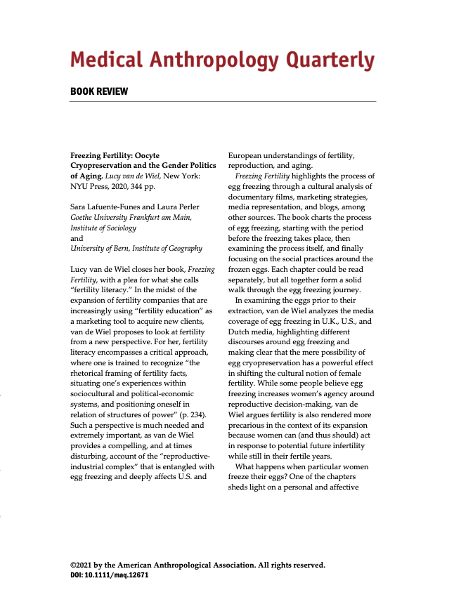
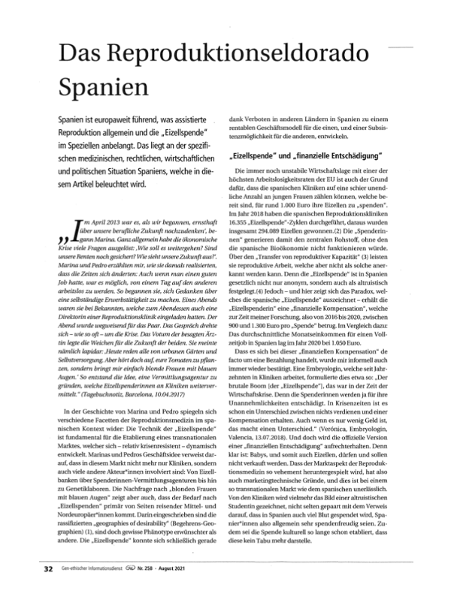

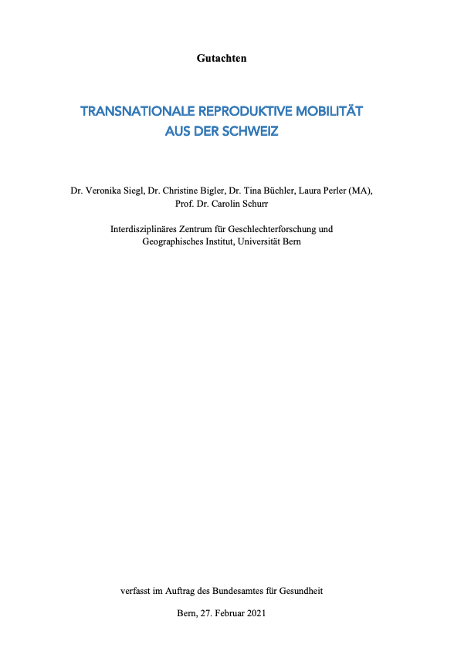

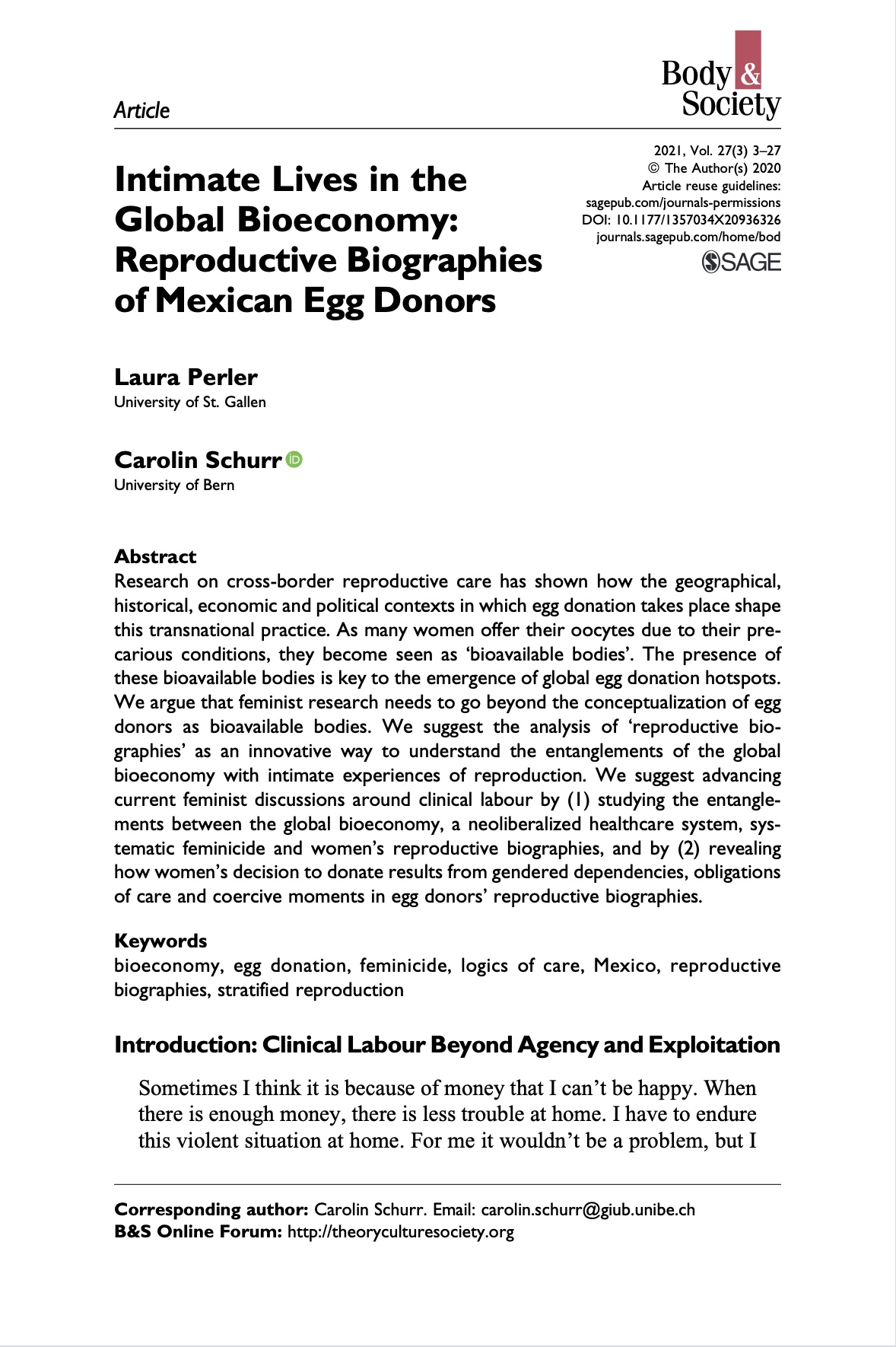
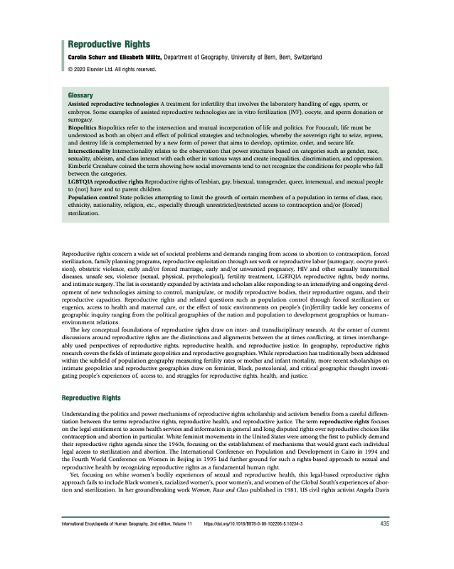
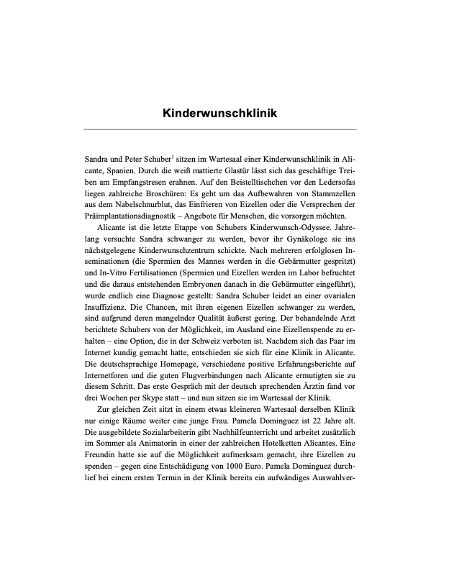
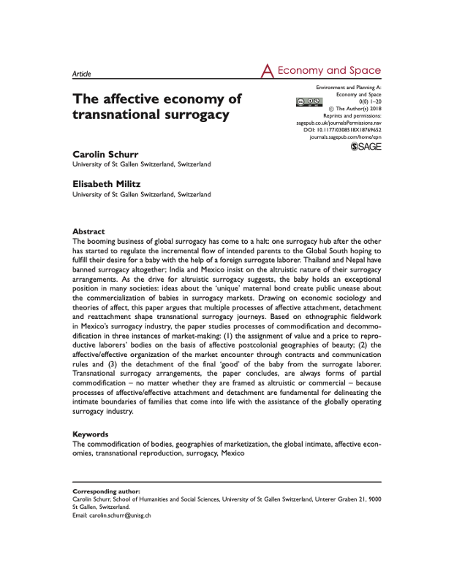
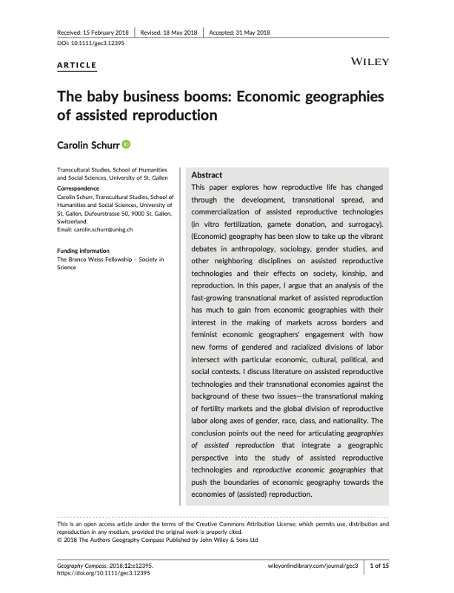
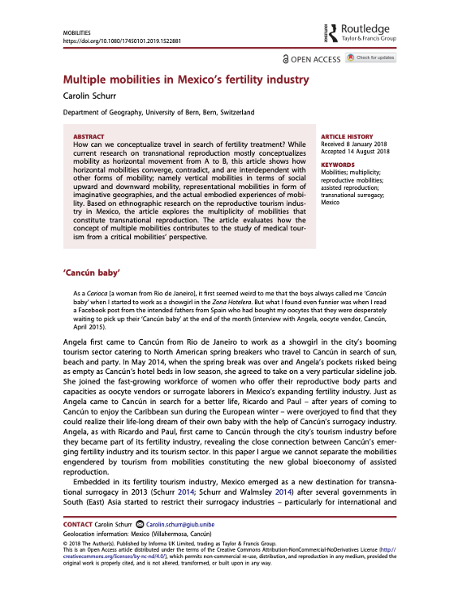
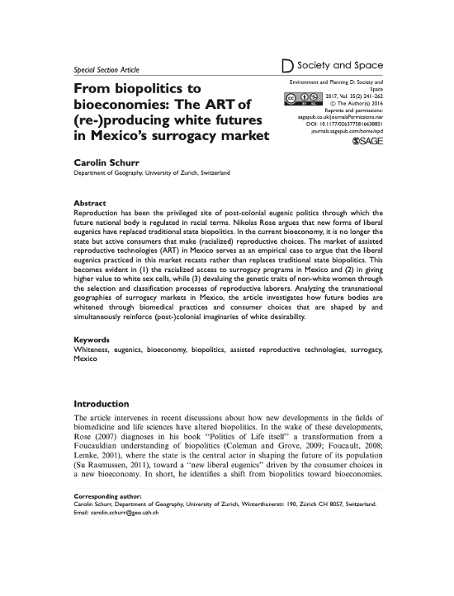


Whose bodies are considered desirable to reproduce and whose bodies’ reproductive desires and capacities are controlled, restricted, or denied? Who has access to prenatal and postnatal health and a safe place for birth? Who is encouraged to prevent a pregnancy, talked into a permanent form of contraception or even forced to be sterilized? Who has access to abortion and under which condition? Reproductive geopolitics engages with these questions by studying how intimate experiences of reproduction are intertwined with global, national, and local politics. The research and exhibition project “Reproductive Geopolitics” takes place in collaboration between the research group Feminist Geographies and the mLAB at the Department of Geography at the University of Bern and is funded by the Swiss National Science Foundation and the University of Bern.




AIM
Access to reproductive health care and reproductive technologies becomes geopolitical when states, international organisations or transnational corporations assign different bodies with different value to reproduce. By doing so, they govern the production of the future national body. This project argues that while in the past the territorial management of populations was explicitly framed as population politics, in the present the governance of reproduction takes place more implicitly through regimes of health care, migration, and sexual politics. Policies in these regimes continue to manage populations in a territorial fashion, but they do not officially pursue population control. Our project seeks to make these unperceived population politics explicit. Through three different case studies, the project examines
RESEARCH QUESTIONS:
CONTRIBUTIONS
The project contributes to understand the role access to reproductive technologies plays in the new unperceived mode of population politics. They are unperceived because they are not articulated or communicated as population politics, yet they nevertheless govern the production of the future national body. Questions of uneven access to both high- and low-tech reproductive technologies and reproductive health care are crucial to understanding whose life counts for the reproduction of the future. Both in academic and political debates, the stratified and geographically highly unequal access to reproductive health as a new mode of governing populations and its consequences have not yet received the attention it warrants.
It engages with the individual and collective practices of resistance against this new mode of population politics. Centering the agency of those affected in their intimate lives by a restricted access to reproductive health, this project will examine marginalized women’s capacities to contest restricted access by circumventive practices and collective organizing.
Its contribution arises from the fact that research on population control mainly focuses on the Global South. Working in a transcultural fashion with case studies in Switzerland, Spain and Mexico, we aim to decenter attention from the population campaigns in the Global South by showing that unperceived modes of population politics also occur in the Global North.
METHODS
Our methodological design starts from women’s intimate experiences of reproduction and follows individual women in their reproductive journeys across scales, space, and time through a mobile and multi-sited ethnography. We accompany the women in their everyday lives to observe their interactions with such diverse institutions as local health-care centers, (trans)national corporations, (trans)national government bodies, (trans)national social movements, and nongovernmental organizations that shape their reproductive journeys. We trace references the women make to local, national, and global policies and legislation and to social activism by following up on these references with expert interviews, archival document analysis, and secondary literature. To capture women’s embodied and emotional experiences of reproduction, we will develop a toolbox of affectual methods that we employ selectively at various scales according to the preferences of the research participants, the suitability in particular contexts, and the specific aims of the research encounter.